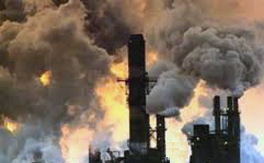Energy and climate change: world energy outlook special report 2015
A peak in global energy-related emissions could be achieved as early as 2020 and at no net economic cost says International Energy Agency in this new report .
The world is moving towards a crucial climate change meeting in Paris in December 2015 (COP21). The negotiations there will be based on national pledges, formally known as Intended Nationally Determined Contributions, with the goal of setting the world on a sustainable path. The International Energy Agency has long emphasised to its members and the world at large that energy production and use which is not compatible with international environmental requirements is not sustainable: it fails the test of energy security.
 The IEA, therefore, feels an obligation to make a contribution to COP21 – a contribution which reconciles climate and energy needs. That is the purpose of this special report in the World Energy Outlook series. The report: Presents a detailed first assessment of the energy sector impact of known and signalled national climate pledges for COP21; Proposes a bridging strategy to deliver a near-term peak in global energy-related greenhouse-gas emissions, based on five pragmatic measures that can advance climate goals through the energy sector without blunting economic growth; Highlights the urgent need to accelerate the development of emerging technologies that are, ultimately, essential to transforming the global energy system into one that is consistent with the world’s climate goals; and Recommends four key pillars on which COP21 can build success, from an energy sector perspective.
The IEA, therefore, feels an obligation to make a contribution to COP21 – a contribution which reconciles climate and energy needs. That is the purpose of this special report in the World Energy Outlook series. The report: Presents a detailed first assessment of the energy sector impact of known and signalled national climate pledges for COP21; Proposes a bridging strategy to deliver a near-term peak in global energy-related greenhouse-gas emissions, based on five pragmatic measures that can advance climate goals through the energy sector without blunting economic growth; Highlights the urgent need to accelerate the development of emerging technologies that are, ultimately, essential to transforming the global energy system into one that is consistent with the world’s climate goals; and Recommends four key pillars on which COP21 can build success, from an energy sector perspective.
